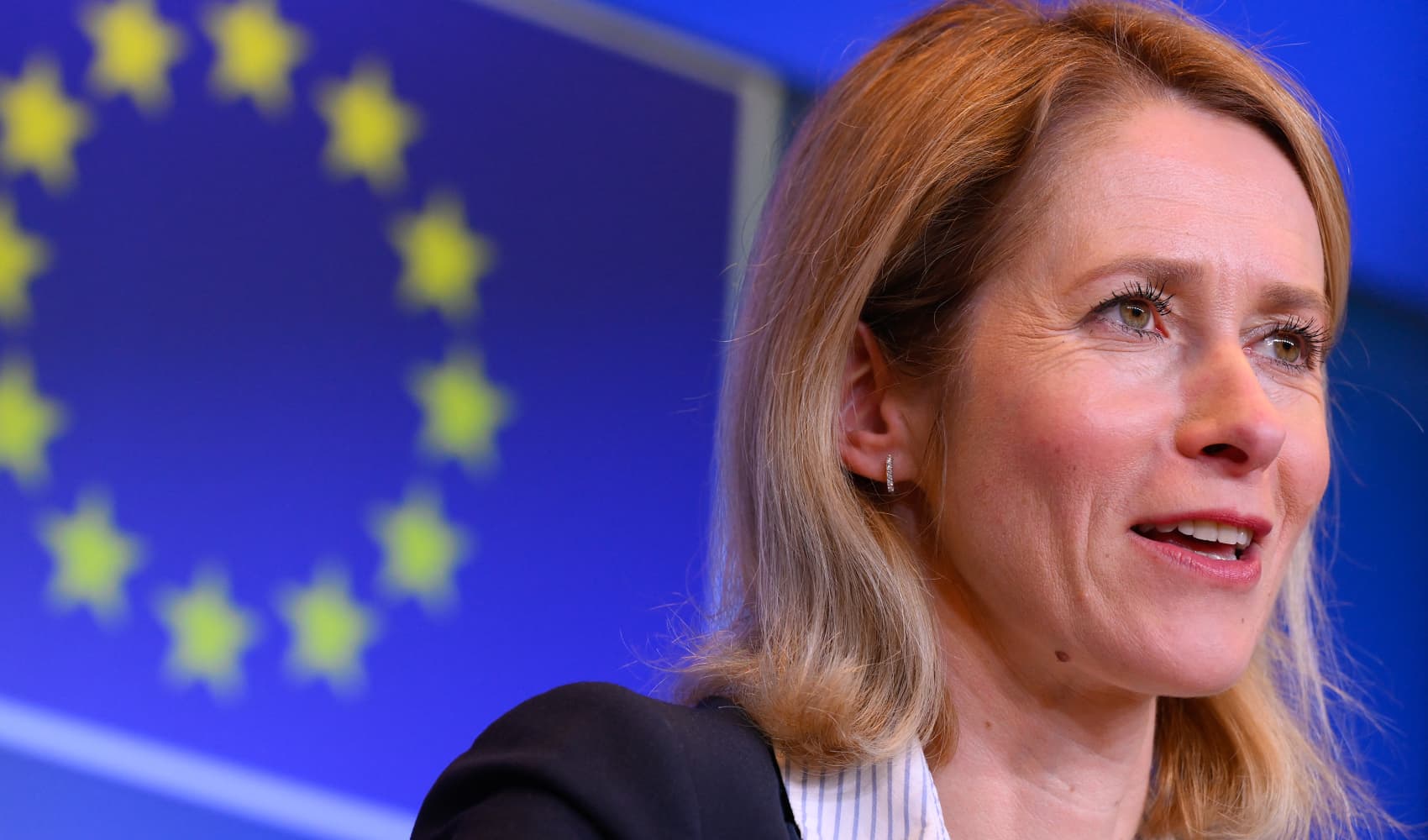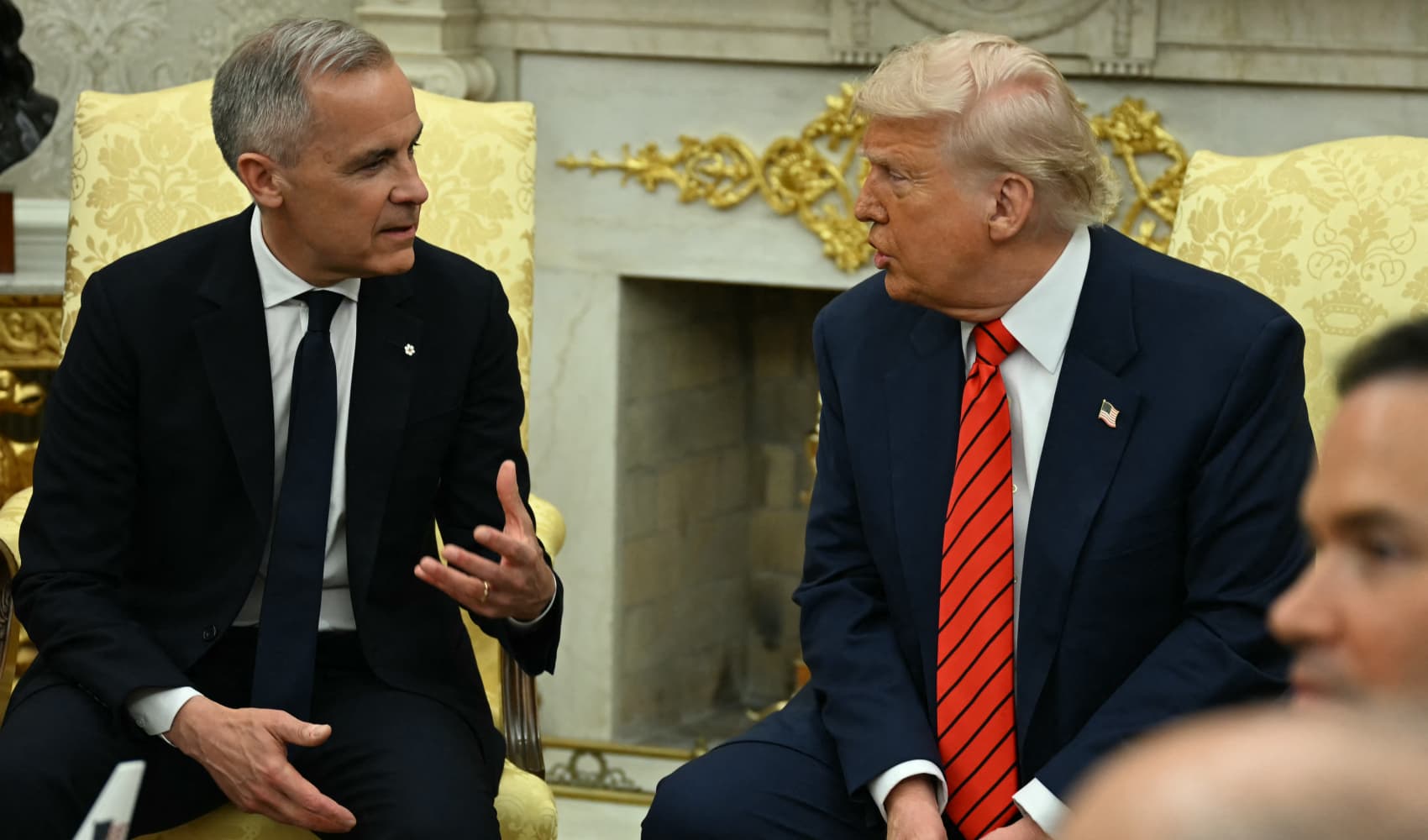Trump's First 100 Days: Europe's Geopolitical Nightmare?
Trump's Second Term Tsunami: How Europe is Navigating the Geopolitical Storm
Introduction: Europe Braces for Impact
Imagine being caught in a sudden downpour without an umbrella. That's a bit how European leaders feel right now. The first 100 days of U.S. President Donald Trump’s second term have sent shockwaves across the Atlantic, leaving many in the European Union scrambling for cover. But is it just a passing shower, or the start of a full-blown geopolitical deluge?
A Foreign Policy Chief's Stark Warning
“It’s unlike anything else we’ve seen before from the U.S. administration,” European Union foreign policy chief Kaja Kallas recently told CNBC’s “Europe Early Edition.” It's a blunt assessment that underscores the unprecedented nature of the current transatlantic relationship. What exactly is causing this unease, and how will it reshape Europe's future?
The Twin Storms: Trade and Ukraine
Europe is grappling with mounting uncertainty on two critical fronts: trade and Russia’s war on Ukraine. Let's dive deeper into each of these challenges.
Trade Tensions Flare Up
Remember the days of seemingly endless trade negotiations and agreements? Well, those days might feel like a distant memory. Trump's "America First" policies have once again put a spotlight on trade imbalances and tariffs, leaving European businesses and economies feeling vulnerable.
Tariffs and Trade Wars: A Deja Vu?
Are we heading towards another round of trade wars? The threat of new tariffs on European goods looms large, potentially disrupting supply chains and impacting key industries. This isn't just about dollars and cents; it's about geopolitical influence and economic stability.
The Impact on Key Sectors
From agriculture to automotive, various sectors across Europe could be significantly affected. Small and medium-sized enterprises (SMEs), the backbone of the European economy, are particularly vulnerable. How can they adapt to this new reality?
Ukraine and European Security
Russia's ongoing war in Ukraine remains a paramount concern for Europe. The U.S. commitment to supporting Ukraine has been a cornerstone of European security. But what happens if that commitment wavers?
The Uncertainty of US Support
A potential shift in U.S. foreign policy towards Ukraine has raised serious questions about the future of European security. Will Europe need to shoulder a greater burden in supporting Ukraine? The answer is increasingly looking like "yes."
Strengthening European Defense
This situation is forcing Europe to rethink its defense strategy. There is a growing push for greater European autonomy in security matters, including increased defense spending and closer cooperation between member states. Is this the dawn of a new era for European defense?
The Geopolitical Chessboard: Europe's Strategic Response
In this rapidly changing world, Europe needs to be agile and strategic. Here's how the EU is maneuvering on the geopolitical chessboard.
Seeking New Alliances
With uncertainty surrounding the U.S., Europe is actively seeking new alliances and partnerships. This includes strengthening ties with countries in Asia, Africa, and Latin America. Diversification is key to mitigating risks.
Reinforcing the European Project
Internal unity is more important than ever. The EU is focusing on reinforcing its internal market, promoting economic resilience, and addressing social inequalities. A strong and united Europe is better equipped to face external challenges.
Diplomacy and Dialogue
Even amidst tensions, dialogue remains crucial. Europe is committed to maintaining open communication channels with the U.S., even when disagreements arise. Diplomacy is not just about agreements; it's about managing relationships.
The Economic Fallout: Preparing for the Worst
What are the potential economic consequences of Trump's policies, and how can Europe prepare for the worst?
Supply Chain Disruptions
New trade barriers could lead to further supply chain disruptions, impacting various industries and potentially leading to inflation. Businesses need to diversify their sourcing and build more resilient supply chains.
Investment Flows
Uncertainty can deter investment. European leaders are working to create a stable and attractive investment climate to encourage both domestic and foreign investment. Confidence is key to economic growth.
The Role of the Euro
The strength of the euro is crucial for maintaining economic stability. The European Central Bank (ECB) plays a vital role in managing monetary policy and ensuring the euro remains a reliable currency.
A Call to Action: What Can Europe Do?
The challenges are significant, but not insurmountable. Here's a look at what Europe can do to navigate these turbulent times.
Investing in Innovation
Innovation is the engine of economic growth. Europe needs to invest heavily in research and development, particularly in areas like green technology and artificial intelligence. Innovation is the key to competitiveness.
Strengthening Social Safety Nets
Economic disruptions can have a significant impact on individuals and families. Strengthening social safety nets, such as unemployment benefits and job training programs, is essential to protect vulnerable populations.
Promoting Sustainable Growth
Sustainable growth is not just about protecting the environment; it's about creating a more resilient and equitable economy. Europe needs to prioritize policies that promote green energy, circular economy, and social inclusion.
Conclusion: Navigating the New World Order
The first 100 days of Trump’s second term have presented Europe with a complex and challenging landscape. The path forward requires a combination of strategic thinking, strong leadership, and unwavering unity. Europe must adapt, innovate, and forge its own path in a rapidly changing world. This is not just about surviving; it's about thriving in the face of adversity.
Frequently Asked Questions
- What are the main concerns of European leaders regarding Trump's trade policies?
European leaders are primarily concerned about potential tariffs on European goods, which could disrupt supply chains and harm key industries. They fear a return to protectionist measures and trade wars.
- How is the uncertainty surrounding US support for Ukraine affecting Europe?
The uncertainty is forcing Europe to rethink its security strategy and consider taking on a greater role in supporting Ukraine. This includes increasing defense spending and strengthening cooperation between member states.
- What steps is Europe taking to mitigate the economic risks associated with Trump's policies?
Europe is seeking new alliances, reinforcing the European project internally, and maintaining open communication channels with the US. They are also focusing on diversifying supply chains and creating a stable investment climate.
- How is the EU promoting innovation to boost economic growth?
The EU is investing heavily in research and development, particularly in areas like green technology and artificial intelligence. They believe innovation is key to remaining competitive in the global economy.
- What measures is Europe taking to strengthen its social safety nets?
Europe is working to strengthen social safety nets by providing unemployment benefits and job training programs to protect vulnerable populations from economic disruptions.


